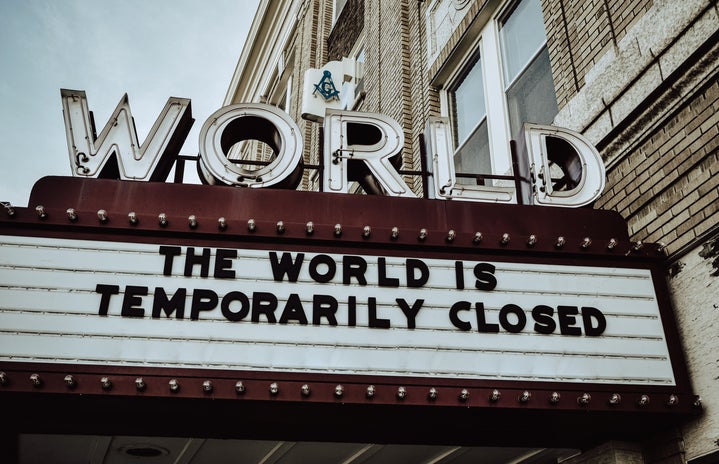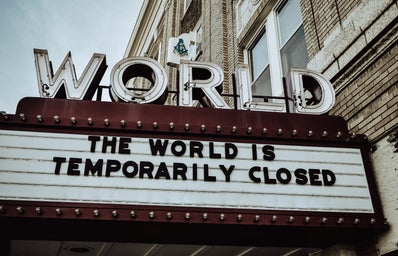On May 5th, 2023, the World Health Organization (WHO) officially declared an end to the COVID-19 pandemic, marking a significant moment in our global history. This declaration initiated discussions about how the pandemic had affected people’s minds and lives, leading to a viral column on the website The Cut that explored our distorted perception of time and aging in the post-pandemic world.
Imagine going to sleep one night, and when you wake up the next morning, you discover that three years have passed. Suddenly, everyone around you, including yourself, has aged three years. You, who had just started college, are now about to graduate. Your body has experienced these years, but your mind hasn’t. How would you feel?
The lockdown, during the pandemic, affected each of us differently. While some seized the opportunity for personal development and productivity, the reality for most was quite different: the majority of people experienced negative effects on their mental health during the period, leading to mental disorders such as depression, anxiety, and a feeling that their minds might be a step out of sync with their bodies.
Katy Schneider, in her column for The Cut, introduced the concept of the “Pandemic Skip”. This phenomenon describes a situation in which someone’s life and experiences become non synchronized with their original timelines due to the pandemic. It’s as if they’ve missed out on a significant part of life while their bodies continue to age. Schneider’s column features stories from people of various ages who share their own stories.
The “Pandemic Skip” has presented a unique challenge for many. While their bodies have aged by three years, their minds seem to be stuck in the past. If you consider new married couples, for example, those who never had the chance to enjoy the early days of their new life phase, with honeymoons, travels, and romantic getaways, are now in a need to make up for lost time, but society tells them that, by this time into the relationship, they should be starting to have kids.
Teenagers, otherwise, who entered the pandemic at the age of fifteen, also felt the consequences of this phenomenon, they had just begun high school, and have now found themselves in university.They missed out on essential life experiences that would have helped their growth and developed more maturity, leaving their minds struggling to catch up with their new reality.
By now, many of us have fully resumed our post-COVID lives. But what about all the years we missed?
By Katy Schneider
Katy’s article explains how stressful experiences can distort our perception of time, especially when confined to our homes for long periods. Days during lockdown felt both fast and slow, making it challenging to remember them accurately. It’s a phenomenon that has caused people to not only lose their sense of personal age but also blur their grasp of time and the loss of experiences. She shared the story of a friend who said that she was five years into her career, and she still felt in her head like she was just starting out.
Even though the idea of age is a concept that has evolved over the decades, the fear of aging and society expectations associated with different ages persist. When you are in your twenties, certain expectations are placed upon you, and some mistakes are easily forgiven. In contrast, when people reach their sixties, there’s an expectation to behave and dress in a specific manner, with far less tolerance for mistakes compared to the younger ones.
An article on The Washington Post explored why we seem to have lost many of our pandemic memories. Our brains struggle to process and retain events that are considered “usual”. The monotony of lockdown blurred these events together, making them difficult to remember in the long term, because our memories tend to focus on distinctive, emotionally charged moments that we deem worthy of reflection.
The “Pandemic Skip” not only challenges our perception of time and aging but also highlights the loss of experiences that would typically help in our growth and maturity. It’s especially impactful for those who began the pandemic at a young age, missing out on crucial life-changing phases. But also, really complicated to those older ones that lost the important last years of their lives.
The TikTok Phenomenon
The discussion surrounding Katy Schneider’s column extended to social media platforms like TikTok and X (Twitter). Women on the internet initiated conversations and shared their personal experiences, revealing that the phenomenon was present in people all around the world. These discussions revealed common concerns that many individuals had experienced.
One common theme in these debates was the distortion of time perception, that people found it challenging to recall when specific events had taken place, explaining that they often refer to 2019 as if it had been just two years ago, despite it being four years ago. This temporal disorientation became a mark of the “Pandemic Skip”, and these discussions showed that lots of people felt the phenomenon, highlighting its influence on their lives and bringing reflections on their relationship between time and aging.
————————————————
The article above was edited by Rafaella Angelotti Alcici.
Liked this type of content? Check Her Campus Casper Libero for more!


